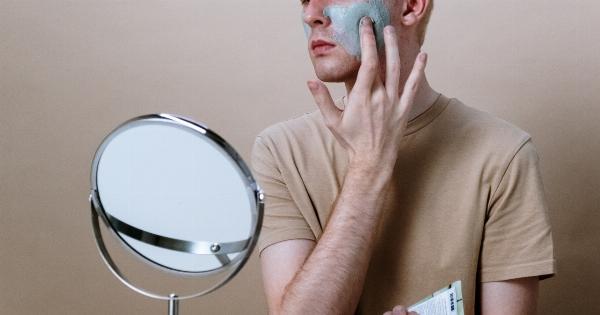Acne is one of the most common skin problems that people face. There are many products available in the market claiming to treat acne, but not all of them are effective. One of the most effective and all-natural remedies for acne is vinegar.
Vinegar is a type of acid that helps to fight bacteria and reduce inflammation. It contains acetic acid, which has antibacterial properties that can help reduce the amount of acne-causing bacteria on the skin. In this article, we will discuss how vinegar can be used to fight pimples and acne.
The Benefits of Vinegar for Acne
Vinegar has several benefits for acne-prone skin. Here are some of the most important:.
1. It works as a natural exfoliator
Vinegar has alpha-hydroxy acids (AHAs), which are natural exfoliators. AHAs can dissolve dead skin cells and unclog pores, preventing pimples and blackheads from forming.
2. It helps to balance the skin’s pH
Our skin is naturally acidic, with a pH level of around 5.5. Harsh soaps and cleansers can disrupt the skin’s pH balance, leading to dryness, irritation, and acne.
Vinegar has a pH level of around 3, which helps to restore the skin’s natural acidity and prevent the growth of bacteria that cause acne.
3. It has antibacterial properties
Vinegar contains acetic acid, which has antibacterial properties. This can help to reduce the amount of bacteria on the skin’s surface and prevent new pimples from forming.
4. It reduces inflammation
Inflammation is one of the main causes of acne. Vinegar has anti-inflammatory properties that can help to reduce redness and swelling associated with pimples and acne.
How to use Vinegar for Acne
There are several ways to use vinegar to fight acne. Here are some of the most effective methods:.
1. As a toner
Vinegar can be used as a toner for acne-prone skin. Mix one part vinegar with three parts water and apply to the face with a cotton ball. Leave on for a few minutes, then rinse off with water.
Be sure to dilute the vinegar or it may cause irritation or dryness.
2. In a facial steam
A facial steam with vinegar can be a luxurious and therapeutic treatment for acne-prone skin. To make a facial steam, bring a pot of water to boil.
Add a few tablespoons of vinegar to the water, then place your face over the pot and cover your head with a towel. Breathe deeply for 5-10 minutes to open up your pores and help release impurities.
3. In a face mask
Another way to use vinegar for acne is by making a face mask. Mix 2 tablespoons of vinegar with 1 tablespoon of honey and 1 tablespoon of plain yogurt. Apply to the face and leave on for 10-15 minutes, then rinse off with water.
This mask can help to exfoliate and soothe the skin, while fighting acne-causing bacteria.
Precautions when using Vinegar for Acne
While vinegar is generally safe to use on the skin, there are a few precautions you should take to avoid irritation or dryness:.
1. Always dilute vinegar before use
Vinegar is highly acidic and can cause irritation or burns if applied directly to the skin. Always dilute vinegar with water before use.
2. Test on a small patch of skin first
Before using vinegar on your entire face, test it on a small patch of skin first to make sure you don’t have an allergic reaction or irritation.
3. Do not apply vinegar to broken skin
Vinegar can be painful and irritating when applied to broken skin, such as open wounds or popped pimples. Avoid using vinegar on broken skin.
Conclusion
Vinegar is an all-natural and effective remedy for acne. It can work as a natural exfoliator, balance the skin’s pH, reduce inflammation, and have antibacterial properties.
There are several ways to use vinegar for acne, including as a toner, in a facial steam, and in a face mask. However, always dilute vinegar before use, test on a small patch of skin first, and avoid applying it to broken skin.






























